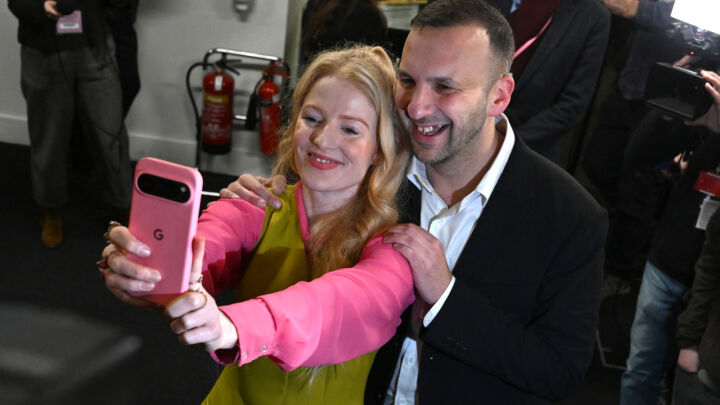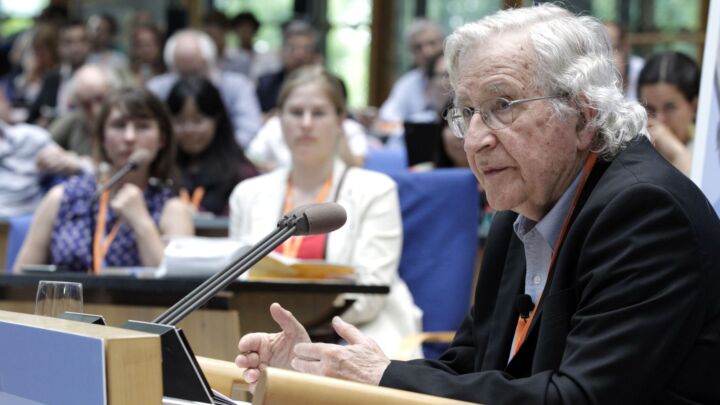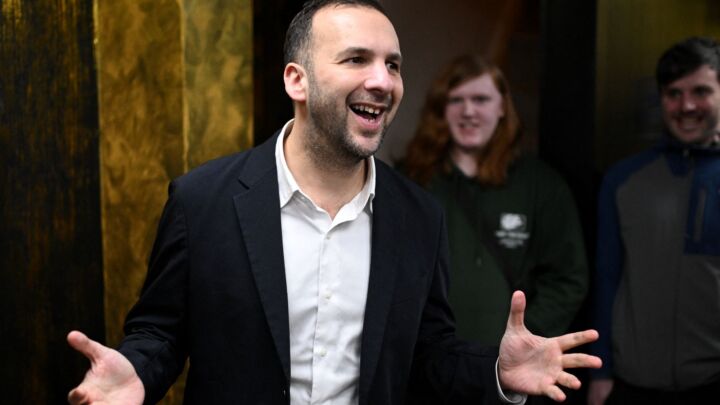The meaning of ‘Gotham’s reckoning’
The left-leaning reviewers complaining that The Dark Knight Rises is pro-capitalist have kind of missed the point.

Want unlimited, ad-free access? Become a spiked supporter.
WARNING: THIS ARTICLE CONTAINS SPOILERS.
With The Dark Knight Rises, the final instalment in his Batman trilogy, Christopher Nolan might have given us the standout movie of the year. But in the process he has irritated the hell out of Occupy-cheering observers. His crime? He has dared to break with the modern Hollywood orthodoxy of depicting capitalism as simplistically evil, an orthodoxy cleaved to by everyone from Disney (Wall-E) to George Clooney (Syriana), and has instead hinted that things are more complicated than that. For uttering this equivalent of a heresy in Hollywood circles, he has left some commentators wondering about ‘the sensitivity of [his] metaphors’.
Observers are not so agitated with Nolan’s movie that they are rubbishing it. It’s still getting rave reviews, all of which are warranted. But there is a palpable sense of disappointment among the Smart Set that this brightest of blockbuster directors failed to use his third Batman film to rant about the alleged architects of the current financial crisis: avaricious financiers and their champagne-swilling buddies. Worse, Nolan’s movie depicts the critics of financiers, those who fantasise about sticking fatcats in kangaroo courts and making them pay for their economic crimes, as cynical, uncouth brutes. This led one critic to opine that the movie ‘demonises collective action against capital’. Another complains that the film ‘firmly upholds the financial status quo’.
The critics’ main beef is Bane (Tom Hardy), villain of The Dark Knight Rises. Decked out in a tattered sheepskin coat and wearing a metallic mask that makes him sound like a terrifying robot, he’s a cross between Del Boy and Darth Vader. He’s the best villain to loom into cinemas in years. He is also a banker-basher. He detests red brace-wearing rich boys. One of his most spectacular attacks is on Gotham’s Stock Exchange, where he and his motorcycling mercenaries fire their guns at computers and take traders hostage. Later, once he conquers Gotham – in some of the most remarkable scenes of destruction you’ll ever see in a movie – he institutionalises showtrials of bankers. Reduced to shaken, dishevelled creatures, these one-time makers of massive amounts of money are jeered at by Bane and his pseudo-revolutionary gang, before being sentenced to ‘death by exile’.
And who comes to the rescue? Batman, of course, otherwise known as Bruce Wayne (Christian Bale), billionaire inhabitant of an enormous mansion and attendee of opulent balls. Having a super-rich superhero wage war against kind-of left-wing villains represents a ‘reactionary vision’, says one observer. It gives us a parable about the ‘good rich’ fighting back against a villain whose ‘rhetoric seems like a nod to the Occupy movement’. Batman is a ‘capitalist caped crusader’, says another reviewer, with his nemesis Bane clearly intended to represent an ‘Occupy Gotham movement’. On the flipside, many right-wing commentators have cheered Nolan’s film as a vindication of their capitalistic outlook, praising him for ‘using the kind of conservative themes that most of artistically bankrupt Hollywood refuses to go near anymore’.
Both sides are guilty of simplifying Nolan’s vision, reducing his hugely complex, pretty profound three-hour film to ‘a message’ – one which apparently says ‘left bad, right good’. It’s nothing of the sort. It is true that Bane echoes the Occupy movement, both through his simplistic hatred of the wealthy and his treatment of the populace as a brainwashed mass who must be enlightened about the misery of their lives. So it is striking that Bane and his cohorts announce their presence in Gotham by taking over a football stadium, destroying the pitch and all the footballers on it (that is, doing away with the masses’ opium-like entertainment), before counselling the dim-witted spectators about the need to rise up against their rich repressors and ‘claim what is rightfully yours’. Taking over a public space to lecture the moronic masses – sound familiar?
But Bane’s menace, his power, his spooky, mechanical insistence that ‘I am Gotham’s reckoning’, is underpinned by more than some warped leftish platitudes. More fundamentally, it is enabled by the rot within Gotham itself, by the disarray and even decay of a once-fine city, by Gotham’s economic instability and more importantly its political ataxia. The most striking thing about Bane is that he is an unknown quantity; he comes from nowhere, almost literally, apparently emerging from a mysterious hole in the ground in some exotic, unnamed territory. He derives his strength, not from the size of his army (it’s pretty measly) or from his own intense convictions, but from the cowardice of Gotham itself.
So it is telling that Gotham’s police basically refuse to guard the Stock Exchange, effectively sharing Bane’s belief that the people inside it are evil. A chief trader has to beg the police to do something about Bane’s assault on this institution, telling them: ‘It’s your money he’s stealing!’ ‘My money’s in my mattress at home’, replies a cynical cop.
Later, Bane finds it incredibly easy to trap a huge swathe of Gotham’s police force underground, thereby denuding the city of state authority. The chief of police responds to this development by going home, locking his door, and spurning pleas that he come and save the city. It is widespread cynicism towards the financial market and its traders and the moral incapacity of Gotham’s armed protectors that facilitate Bane’s rampage. He appears strong only because his target is weak. Indeed (BIG SPOILER AHEAD), when we discover that Bane is not the evil mastermind we thought he was, he is killed with remarkable ease, this seemingly invincible figure dispatched like a dog. He is more spectre than physical threat, energised not by his own evil but by others’ apprehension.
Nolan gives us a vision of a capitalist system denuded of officialdom’s advocacy – not only cut loose from the rules of the capitalism of old, but also lacking serious validation from society’s rulers. That the police, that ‘special body of armed men’, whose traditional role, in a nutshell, was to preserve the capitalist order, fail to get enthused about protecting the Stock Exchange from a madman in a mask speaks volumes about the disjuncture between the economic and political systems, not only in Gotham, but in our world, too. Bane is hellbent, not on destroying Gotham, but on cleansing it. His destructiveness springs from his belief that avarice and decadence are the cause of Gotham’s woes, a belief he shares with many of the ‘goodies’ in Gotham, including the cops. And how does one deal with decadence? By reprimanding, or doing away with, those who exhibit such behaviour.
This is what Bane means when he says ‘I am Gotham’s reckoning’, words which will linger in your head long after the movie ends: he means he is a natural and necessary corrective, one implicitly called for by Gotham itself, to Gotham’s presumed descent into immorality. Here, Bane’s moralistic destructiveness, his violent plans for the rich and uncaring, does reflect, to a certain extent, the impetuosity of Occupiers. They, too, are really a product of mainstream society’s disgust with itself. And they, too, being bereft of social or ideological convictions, and being convinced that the crisis is a product of wicked behaviour on the part of evil financiers, can only dream of ‘cleansing’ society, of having the decadent punished for their sins. As The Dark Knight Rises shows us, the naive, almost feudal belief that decadence is the cause of social and economic problems leads inevitably to violent-minded or at least super-moralistic solutions; though of course, Occupiers lack Bane’s menace and his villainous coolness.
Brendan O’Neill is editor of spiked. Visit his personal website here.
See the trailer for The Dark Knight Rises:
You’ve hit your monthly free article limit.
Support spiked and get unlimited access.
Support spiked and get unlimited access
spiked is funded by readers like you. Only 0.1% of regular readers currently support us. If just 1% did, we could grow our team and step up the fight for free speech and democracy.
Become a spiked supporter and enjoy unlimited, ad-free access, bonus content and exclusive events – while helping to keep independent journalism alive.
Monthly support makes the biggest difference. Thank you.










Comments
Want to join the conversation?
Only spiked supporters and patrons, who donate regularly to us, can comment on our articles.